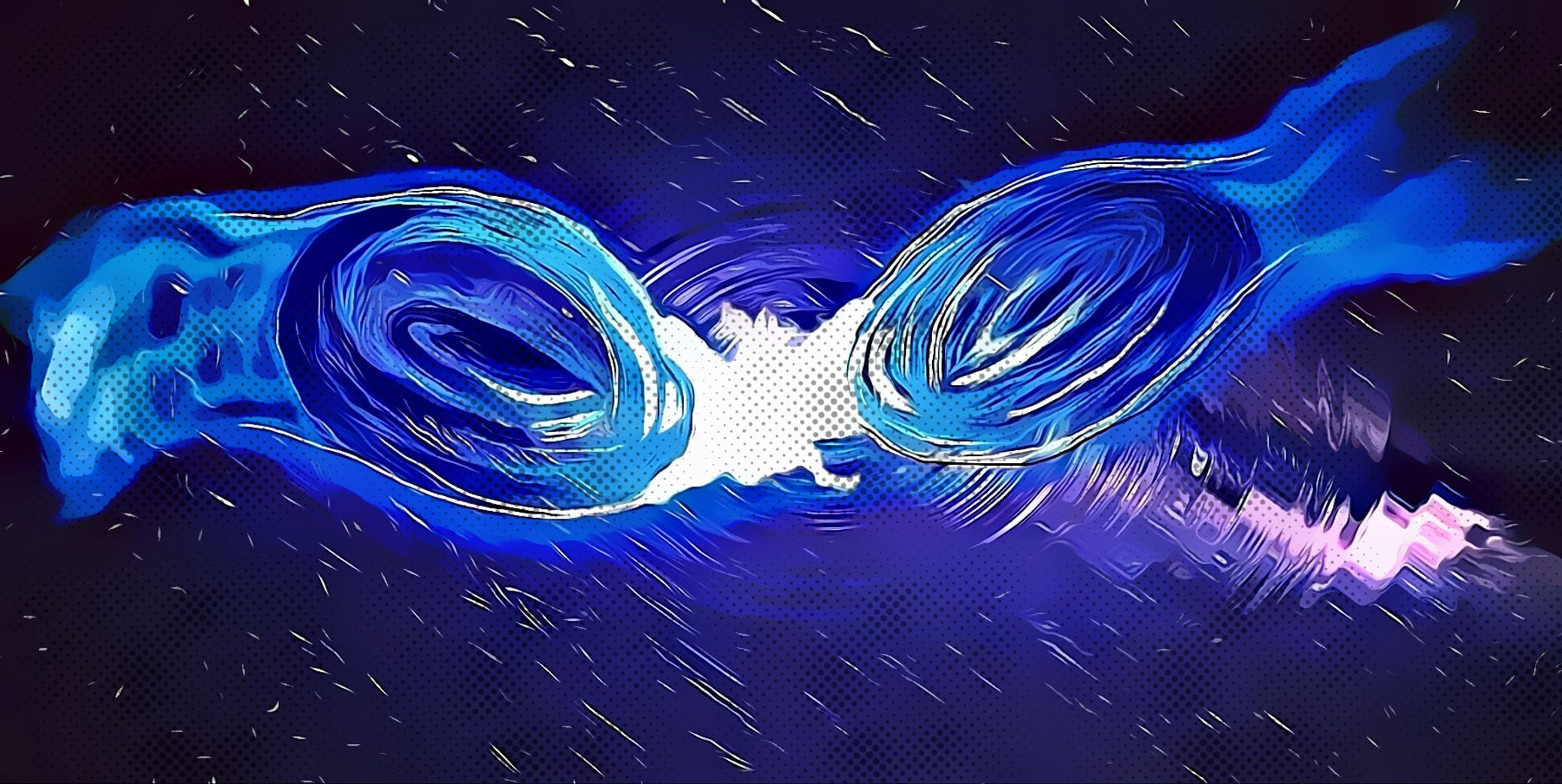Merging boson stars instead of colliding black holes?
Bosons are particles with an even spin. They include the fundamental particles that mediate the individual interactions (such as photons for electromagnetism), but also composite particles such as helium-4 atoms. Their peculiarity is that any number of them can occupy the same ground state. They are then indistinguishable from each other and form a Bose-Einstein condensate with unusual properties. Among other things, the density of the condensate can approach infinity.
This would make bosons good candidates for very heavy celestial bodies, where huge masses crowd into a small space. Who doesn’t think of a black hole? But a celestial object made of bosons would hardly be larger than a black hole, even if it had the same mass, and it would also bend light, but it would not have an event horizon. Such a boson star would even remain transparent, and we could see what falls into it. Thus, boson stars would avoid some of the black hole problems that trouble scientists, such as the information paradox.
Still, scientists are skeptical about the existence of boson stars. Indeed, it is unclear what kind of bosons they might be made of. If a boson star is to be the end result of a supernova, the particles of the star would have to be somehow converted into bosons during the supernova. But it is also possible that boson stars were formed shortly after the Big Bang from bosons that were very densely packed at that time. These could now belong to the dark matter or dominate the galaxies as central objects. How can this be proved? Only with difficulty.
However, there are processes in which boson stars behave differently from black holes. For example, during their mergers. Researchers have now examined data from gravitational wave detectors that are thought to have detected signals from the merger of two black holes. In the researchers’ own simulation, however, a merger of boson stars would explain the existing data just a little bit better. That «little bit» is not yet enough to do away with black holes. But the scientists hope that more observations will confirm their data.
According to a co-author of the study, Professor Carlos Herdeiro of the University of Aveiro, the discovery is not only the first observation of boson stars, but also of a new particle known as an ultralight boson. Such ultralight bosons have been proposed as components of what we know as dark matter. Moreover, the team can actually measure the mass of this putative new dark matter particle, and a value of zero is rejected with a high degree of confidence. If confirmed by subsequent analysis of GW190521 and other gravitational wave observations, the result would provide the first observational evidence for a long-sought dark matter candidate.

Hi.
Unless the size of a boson star is much bigger than a black hole’s, why wouldn’t a boson star also have an event horizon?
I’m no physicist (not yet anyway!), but my assumption was that if it is bending light, then it is curving space-time and I would have thought the same relativistic process would apply.
Regards,
Chris.
Boson stars, if they exist, would not be compact enough to develop an event horizon, i.e. bend light so much that it cannot escape anymore. In a black hole, the mass is concentrated in the indefinitely tiny singularity in the center. In a boson star, the same mass spreads spherically, more like in a neutron star.